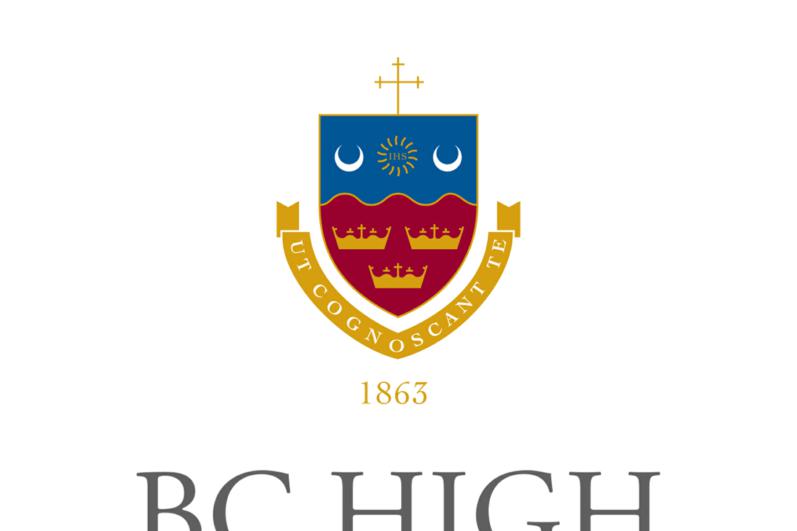BC High School house system aims to create 'communities within a community'
BOSTON -- Boston College High School is planning to implement a house system starting in the 2022-2023 academic year, a change that the all-boys high school's leadership considers to be in keeping with their Jesuit values.
A vertical house system may be unfamiliar to most Americans, but they are commonplace in some countries, such as Australia, where BCHS Principal Adam Lewis is from. He has seen it work in different schools where he has worked, including other Jesuit schools.
"The basic premise for it is to create smaller communities within a community," Lewis explained in a March 11 interview.
Both prospective students and parents have expressed that BCHS can feel big, according to Grace Regan, the school's president. And no wonder: the student body has over 1,400 students.
"We have a great school spirit at BC High, but when you have students coming from 100 communities, it's hard sometimes to pull them all together," Regan said.
The school has held open meetings with different constituents, including students and alumni, to discuss the implementation of the house system.
"We've been blessed with how supportive people have been," Lewis said.
Under the new system, the student body will be divided into 12 groups of between 85-100 students, with about 20-25 drawn from each grade. Each house will be led by one head of house, as well as eight or nine adult mentors and smaller groups of student leaders.
Students will check in with their house each morning, and each house will meet at least once a week for 50 minutes. Mentor groups will also meet for 10 minutes three times a week.
The heads of houses, who will be the primary points of contact for students and parents, are being selected from the school's faculty and staff through an application process. They will teach fewer classes in order to have time for their new responsibilities, such as meeting with students and offering day-to-day guidance.
Lewis said they were "overwhelmed" by the number of teachers who applied to be heads of houses.
"It's a wonderful testament to the community, how many people wanted to apply," he said.
Students will have the same house throughout their four years in the school, allowing them to form long-term relationships with their house's leadership and other students.
Regan said they expect a "natural mentorship" between upperclassmen and lowerclassmen in each house, while younger students can aspire to be leaders in their junior or senior year.
"We really feel that this will enhance the student experience, make it feel smaller, help the students advocate and navigate in a very meaningful way, and develop relationships with their cohorts," Regan said.
As a Jesuit school, BCHS draws its values from St. Ignatius, the founder of the Society of Jesus. Lewis explained that their Ignatian spirituality puts relationships at the center of their work, which involves "cura persona" -- care of the whole person -- in other words, the holistic formation of students. He said that a house system "fits in beautifully with that deeper philosophy."
"Our starting point at BC High is context and knowing our boys' stories. And this is a way that we can get to know them more quickly and more deeply," Lewis said.
Each house will be dedicated to a patron -- probably a saint -- who reflects the values of the Jesuits and the diversity of Boston's Catholic community. While St. Ignatius will remain the school's patron, the house patrons will give students the opportunity to connect with another person, Lewis explained.
"We hope that those various charisms will also add to our own Ignatian pedagogy and spirituality," Regan said.
The new house system is part of the school's Vision 2026 strategic plan. This plan has three aspects: a campus plan, improving access to affordability, and enhancing the student experience.
Regan said that now is "a very exciting time at BC High."
"We're moving in a swift direction toward 2026," she said.
Lewis acknowledged that the current class of juniors, who will be seniors during the first year of the house system, have had a difficult high school experience with the interruptions caused by the coronavirus pandemic. But, Lewis said, the juniors have been supportive and see the house system as the legacy they will leave behind.
"Hopefully, in 100 years, it'll still be here," Lewis said.



















